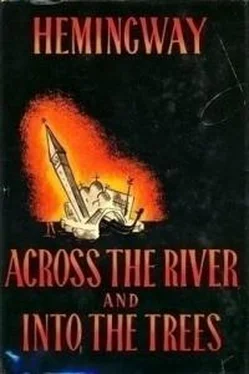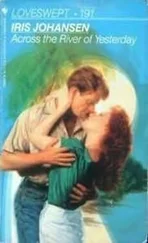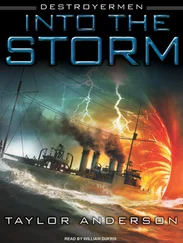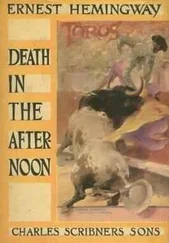'I couldn't spit that night nor afterwards for a long time,' he said. 'But I spit good now for a man who doesn't chew.'
He walked slowly back to where the car was parked. The driver was asleep.
'Wake up, son,' he had said. 'Turn her around and take that road towards Treviso. We don't need a map on this part. I'll give you the turns.'
Now, on his way into Venice, keeping strictly controlled and unthinking his great need to be there, the big Buick cleared the last of San Dona and came up on to the bridge over the Piave.
They crossed the bridge and were on the Italian side of the river and he saw the old sunken road again. It was as smooth and undistinguished now, as it was all along the river. But he could see the old positions. And now, along each side of the straight, flat, canal–bordered road they were making time on were the willows of the two canals that had contained the dead. There had been a great killing at the last of the offensive and someone, to clear the river bank positions and the road in the hot weather, had ordered the dead thrown into the canals. Unfortunately, the canal gates were still in the Austrians' hands down the river, and they were closed.
So there was little movement to the water, and the dead had stayed, there a long time, floating and bloating face up and face down regardless of nationality until they had attained colossal proportions. Finally, after organization had been established, labour troops hauled them out at night and buried them close to the road. The Colonel looked for added greenness close to the road but could not note any. However, there were many ducks and geese in the canals, and men were fishing in them all along the road.
They dug them all up anyway, the Colonel thought, and buried them in that big ossario up by Nervesa.
'We fought along here when I was a kid,' the Colonel told the driver.
'It's a God–damn flat country to fight in,' the driver said. 'Did you hold that river?'
'Yes,' the Colonel said. 'We held it and lost it and took it back again.'
'There isn't a contour here as far as you can see.'
'That was the trouble,' the Colonel said. 'You had to use contours you couldn't see, they were so small, and ditches and houses and canal banks and hedgerows. It was like Normandy only flatter. I think it must have been something like fighting in Holland.'
'That river sure doesn't look anything like the Rapido.'
'It was a pretty good old river,' the Colonel said. 'Up above, it had plenty of water then, before all these hydro–electric projects. And it had very deep and tricky channels in the pebbles and shingle when it was shallow.'
He knew how boring any man's war is to any other man, and he stopped talking about it. They always take it personally, he thought. No one is interested in it, abstractly, except soldiers and there are not many soldiers. You make them and the good ones are killed, and above they are always bucking for something so hard they never look or listen. They are always thinking of what they have seen and while you are talking they are thinking of what they will say and what it may lead to in their advancement or their privilege. There was no sense boring this boy, who, for all his combat infantryman badge, his Purple Heart and the other things he wore, was in no sense a soldier but only a man placed, against his will, in uniform, who had elected to remain in the army for his own ends.
'What did you do in civil life, Jackson?' he asked.
'I was partners with my brother in a garage in Rawlins, Wyoming, sir.
'Are you going back there?'
'My brother got killed in the Pacific and the guy who was running the garage was no good,' the driver said. 'We lost what we had put in it.'
'That's bad,' the Colonel said.
'You're God–damned right it's bad,' the driver said and added, 'sir'.
The Colonel looked up the road.
He knew that if they kept on this road they would come, shortly, to the turn that he was waiting for; but he was impatient.
'Keep your eyes open and take a left hand turn on the road leading off this pike,' he told the driver.
'Do you think those low roads will be good with this big car, sir?'
'We'll see,' the Colonel said. 'Hell, man, it hasn't rained in three weeks.'
'I don't trust those side roads in this low country.'
'If we get stuck, I'll haul you out with oxen.'
'I was only thinking about the car, sir.'
'Well, think about what I told you and turn off on the first left side road you see if it looks practicable.'
'That looks like one coming up, from the hedges,' the driver said.
'You're all clear behind. Pull up just ahead of it and I'll go over and have a look.'
He stepped out of the car and walked across the wide, hard–surfaced road and looked at the narrow dirt road, with the swift flowing canal beside it, and the thick hedge beyond. Beyond the hedge, he saw a low red farmhouse with a big barn. The road was dry. There were not even cart ruts sunk in it. He got back into the car.
'It's a boulevard,' he said. 'Quit worrying.'
'Yes, sir. It's your car, sir.'
'I know,' the Colonel said. 'I'm still paying for it. Say, Jackson, do you always suffer so much any time you go off a highway on to a secondary road?'
'No, sir. But there's a lot of difference between a jeep, and a car as low hung as this. Do you know the clearance you have on your differential and your body frame on this?'
'I've got a shovel in the truck and we've got chains. Wait till you see where we're going after we leave Venice.'
'Do we go all the way in this car?'
'I don't know. I'll see.'
'Think about your fenders, sir.'
'We'll cut the fenders off like the Indians do in Oklahoma. She's over–fendered right now. She's got too much of everything except engine. Jackson, that's a real engine she's got.'
'It certainly is, sir. It's a great pleasure to drive that big engine on the good roads. That's why I don't want anything to happen to her.'
'That's very good of you, Jackson. Now just quit suffering.'
'I'm not suffering, sir.'
'Good,' said the Colonel.
He was not, either, because just then he saw, beyond the line of close–bunched brown trees ahead, a sail moving along. It was a big red sail, raked sharply down from the peak, and it moved slowly behind the trees.
Why should it always move your heart to see a sail moving along through the country, the Colonel thought. Why does it move my heart to see the great, slow, pale oxen? It must be the gait as well as the look of them and the size and the colour.
But a good fine big mule, or a string of pack mules in good condition, moves me, too. So does a coyote every time I ever see one, and a wolf, gaited like no other animal, grey and sure of himself, carrying that heavy head and with the hostile eyes.
'Ever see any wolves out around Rawlins, Jackson?'
'No, sir. Wolves were gone before my time; they poisoned them out. Plenty coyotes, though.'
'Do you like coyotes?'
'I like to hear them nights.'
'So do I. Better than anything, except seeing a ship sailing along through the country.'
'There's a boat doing that over there, sir.'
'On the Sile canal,' the Colonel told him. 'She's a sailing barge going to Venice. This wind is off the mountains now and she makes it along pretty good. It's liable to turn really cold to–night if this wind holds and it ought to bring in plenty ducks. Turn to your left here and we'll run along the canal. There's a good road.'
'They didn't have much duck shooting where I came from. But there was plenty of it in Nebraska along the Platte.'
'Do you want to shoot where we're going?'
'I don't believe so, sir. I'm not much of a shot, and I'd rather stay in that sack. It's a Sunday morning, you know.'
Читать дальше
Конец ознакомительного отрывка
Купить книгу












